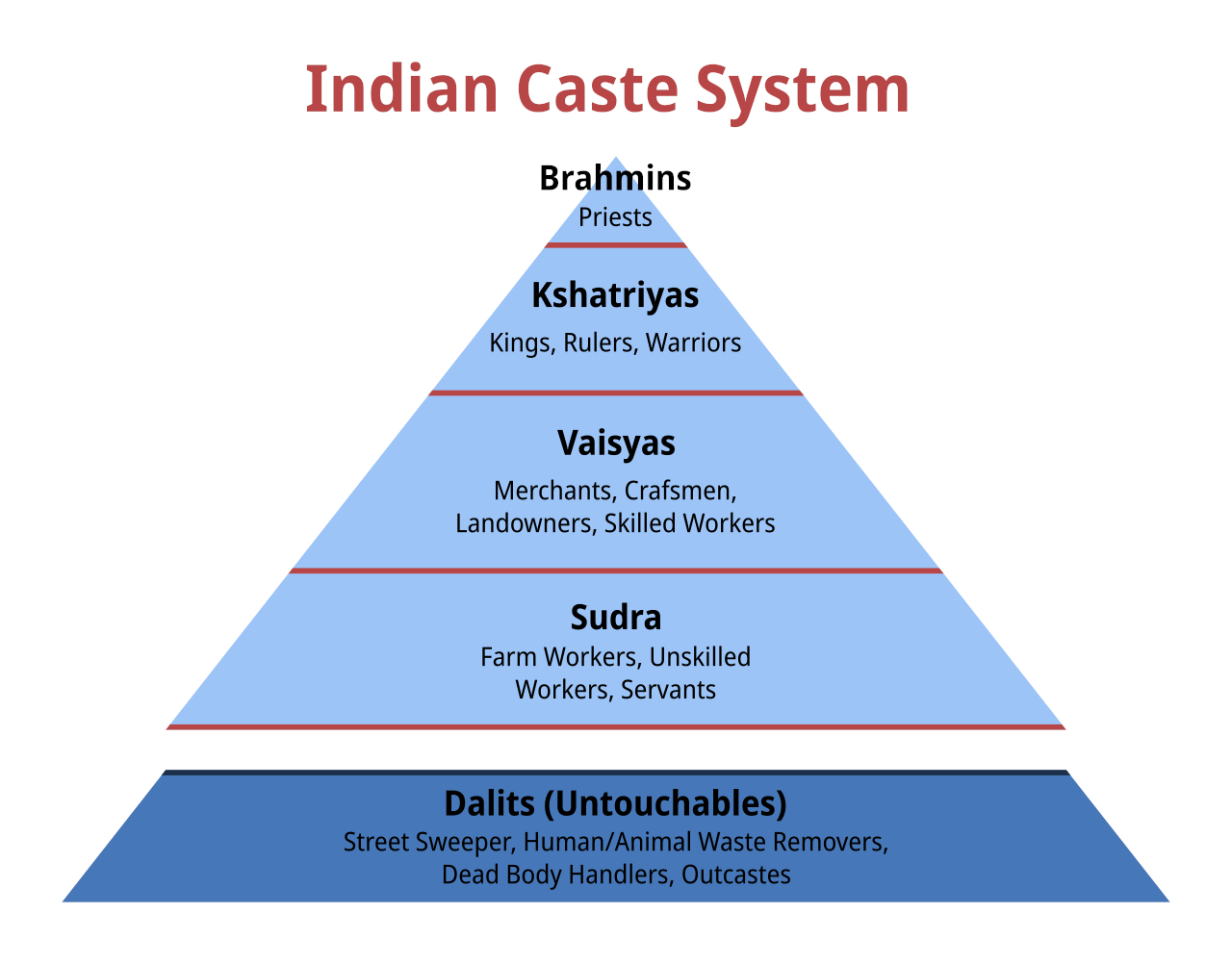
The Indian Caste System: CAIR-TX Calls on Texas Universities to Take Action
Most of us are familiar with South Asia’s infamous social hierarchy: the caste system. Developed over 3,000 years ago in India, the caste system divides people through occupation and is passed down through family. It exists not only among Indian Hindus but also among those in other South Asian countries, regardless of religion (for example, Pakistan, even with its Muslim majority). Although it was legally abolished in India’s constitution in 1950, it is still heavily rooted in South Asian society, where someone’s caste determines every aspect of their life, whether it is their job, marriage, living conditions, etc. At the bottom of the four castes, Dalits receive the most brutality, as they are designated to the most undesirable jobs. During the pandemic, for example, they were most exposed to COVID-19 due to the lack of personal protective equipment for sanitation workers. Those who immigrated to the United States with Dalit status expected a better life where their opportunity wasn’t restricted by their caste; however, this system still haunts them, even in educational settings.
On January 1st, 2023, California State University joined a wave of U.S. universities to ban caste-based discrimination. After two years of advocacy, the university added the term “caste” after the words “race and ethnicity” in their anti-discrimination policy. Dalits in universities face discrimination based on their caste, which includes microaggressions, social exclusion, etc. Victims of caste discrimination often hesitate to report these incidents, so this addition to Cal State’s policy provided relief to many South Asian students on campus.
Dadasaheb Tandale, a graduate student of social development and inclusion, recalls an interaction with an upper-caste professor to Vice in an interview:
“An African American classmate of mine asked him why he was ignoring the question of caste because she could empathize with that struggle given her heritage,” Tandale said. Then, smirking and pointing in Tandale’s direction, the professor told his classmate: “Your friend here apparently knows all about it.”
“I was thoroughly humiliated,” Tandale said. “Here he was, a Ph.D. holder and a professor of social sciences, and he was still resorting to such cheap, sly, casteist remarks.”
Tandale is not alone. Numerous students with this discriminatory label must face similar confrontations, like Pariyar, a Dalit Hindu from Nepal who studied at Cal State’s graduate program. According to CNN:
While waiting at a Bay Area rapid transit station on one occasion, he encountered two Nepali students and introduced himself. Their conversation was warm, he said, until they asked for his name. When he told them, Pariyar said they looked him up and down and appeared uncomfortable. Their reaction was humiliating.
“Why? Why do they do that?” Pariyar said “They were surprised seeing a Nepali Dalit from ‘untouchable’ community going to their university.”
There are numerous stories of acts of aggression and discrimination, not just on U.S. college campuses. Tandale told Vice that he “identifies with being referred to as Ambedkarite, instead of Dalit.” Ambedkarite is a progressive term named after the “anti-caste jurist who drafted India’s first constitution in 1949”.
We at CAIR-TX call for systemic reform and action at other U.S. universities and institutions, just like Cal-State, to abolish caste-based discrimination. We must advocate for change for all South Asians who must bear the weight of this mark, and influence policy-makers to take action.
Amna Siddiqui
CAIR-TX Journalism Intern

